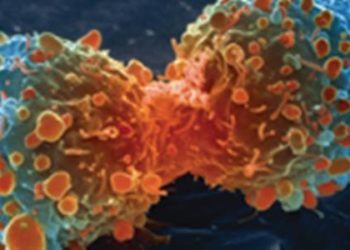Adolescents, girls more vulnerable to persistent postconcussion symptoms
1. Postconcussion syndromes persisted at 12 months after mild traumatic brain injury (mTBI) in 39% of children.
2. Adolescence, female sex, lower income, preinjury mood problems, and poorer family function were associated with higher severity of chronic postconcussion symptoms during the year after mTBI.
Evidence Rating Level: 2 (Good)
Study Rundown: Mild traumatic brain injury can lead to prolonged cognitive, physical, and affective postconcussion symptoms for many months after the initial injury. Previous literature is inconsistent in identifying factors that predispose children to developing postconcussion symptoms. In this prospective cohort study, researchers used postconcussion symptom surveys and family function surveys examine persistence of postconcussion symptoms after mTBI. Girls had twice the odds of chronic postconcussion symptoms at 12 months after mTBI when compared to boys. Preinjury mood problems, adolescence, lower income, and poorer family function were independently associated with higher symptom burdens, whereas higher social capital was protective against postconcussion symptoms.
The data were obtained via parent report, which may be subject to bias. Furthermore, subjects were identified only in the emergency setting and may not be representative of all children with mTBI. Nonetheless, the study is strengthened by its prospective, longitudinal cohort design and an injury comparison group. For physicians, these findings highlight the importance of identifying patients at risk for prolonged postconcussion symptoms and intervening early to address those problems.
Click to read the study, published in Pediatrics
Relevant reading: Prognosticators of Persistent Symptoms Following Pediatric Concussion: A Systematic Review
In-Depth [prospective cohort]: Researchers used data from 2 pediatric trauma centers to identify 347 children aged 4 to 15 years who sustained a mTBI or orthopedic injury (OI). (Children with severe psychiatric disorders or developmental delay were excluded from the study.) Parents and guardians of these children were surveyed on sociodemographic and child characteristics. Postconcussion symptoms were assessed at 3, 6, and 12 months after injury using the Postconcussion Symptom Inventory – Parent (PCSI-P). Family function and social capital were calculated using the McMaster Family Assessment Device (FAD).
Girls with mTBI had PCSI-P scores that were 3.4 points (SE: 1.19; p = 0.04) higher for girls than for boys across follow-up and higher odds of chronic postconcussion symptoms at 12 months (aOR: 1.91; 95%CI: 1.05-3.59). Preinjury mood problems, adolescence, lower income, and poorer family function were also independently associated with higher symptom burdens after controlling for other factors. Higher social capital (1-point increase in FAD) reduced odds for chronic postconcussion symptoms at 12 months (aOR: 0.66; 95%CI: 0.50-0.88).
Image: PD
©2018 2 Minute Medicine, Inc. All rights reserved. No works may be reproduced without expressed written consent from 2 Minute Medicine, Inc. Inquire about licensing here. No article should be construed as medical advice and is not intended as such by the authors or by 2 Minute Medicine, Inc.






